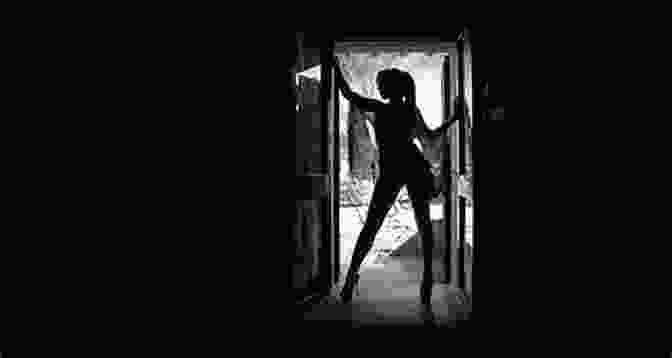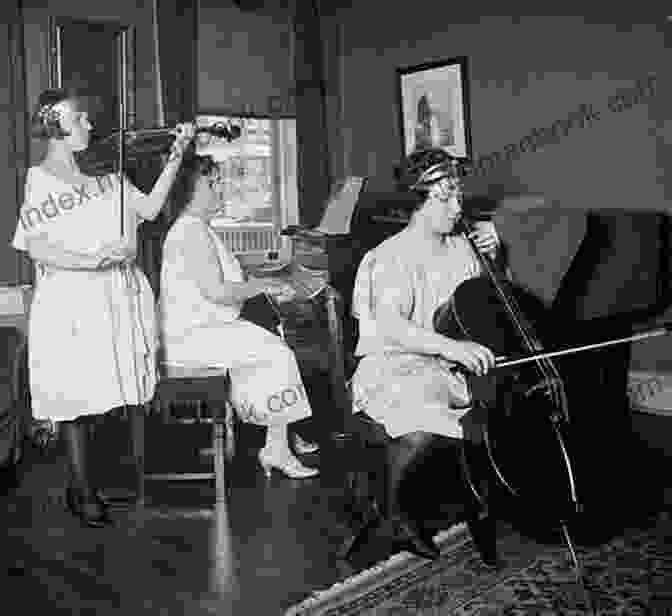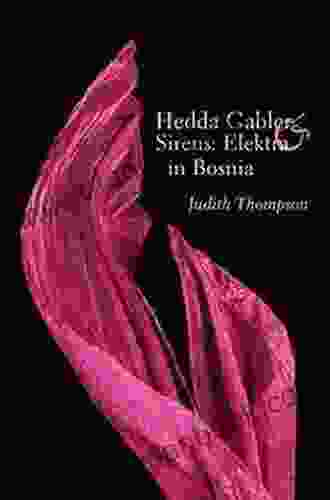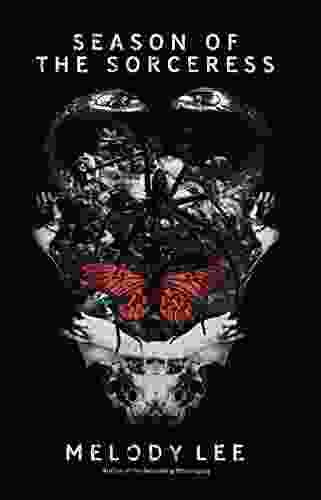Hedda Gabler, Sirens, and Elektra in Bosnia: A Tapestry of Female Identity and Resilience

In the heart of Bosnia, where the scars of war and political turmoil ran deep, the theater became a sanctuary for voices that dared to explore the complexities of human existence. Amidst the chaos, three distinct productions emerged, each featuring a captivating female protagonist: Hedda Gabler, the Sirens, and Elektra.
Hedda Gabler: A Reflection of Female Suffocation and Subversion

4.4 out of 5
| Language | : | English |
| File size | : | 1859 KB |
| Text-to-Speech | : | Enabled |
| Screen Reader | : | Supported |
| Enhanced typesetting | : | Enabled |
| Print length | : | 128 pages |
| Lending | : | Enabled |
| X-Ray for textbooks | : | Enabled |
Henrik Ibsen's Hedda Gabler, a Norwegian drama set in the late 19th century, was brought to life on the Bosnian stage in the midst of a violent conflict. The production deftly captured the essence of Hedda, a woman trapped within the confines of a loveless marriage and stifled by society's expectations.
The Bosnian Hedda, portrayed by the acclaimed actress Senada Alibegović, exuded a sense of restless energy and simmering frustration. Her cold, piercing gaze and sharp tongue reflected the bitter disillusionment of women who found themselves suffocating under the weight of patriarchal norms.
Through Hedda's unfulfilled desires and impulsive actions, the production laid bare the complexities of female identity in a society that valued women primarily as objects of possession. Hedda's desperate attempts to control her own destiny, culminating in her tragic suicide, became a poignant symbol of the limitations and frustrations faced by women in Bosnian society at the time.
Sirens: A Chorus of Trauma, Loss, and Unfulfilled Longings

Inspired by the ancient Greek myth of the Sirens, whose alluring songs lured sailors to their deaths, Bosnian playwright Tatjana Božić crafted a haunting and thought-provoking play that explored the aftermath of war through the voices of three women.
The Sirens, each representing a different perspective on the conflict, shared their stories of trauma, loss, and unfulfilled dreams. Through their haunting melodies and haunting lyrics, they captured the collective pain of a nation grappling with the scars of violence.
The production, directed by Dino Mustafić, featured powerful performances by Ena Begović, Alisa Jaafar, and Alma Terzić. Their voices intertwined in a chorus of lamentation and resilience, echoing the struggles and hopes of countless Bosnian women who had endured the horrors of war and were forced to rebuild their lives in its aftermath.
Elektra: A Tale of Vengeance, Grief, and the Resilience of the Human Spirit

Returning once again to the realm of Greek mythology, the Bosnian theater staged a gripping production of Sophocles' Elektra, a story of vengeance, grief, and the indomitable spirit of a woman wronged.
In this powerful adaptation, directed by Aida Bukvić, actress Snezana Marković portrayed Elektra with raw emotional intensity. Driven by an unyielding thirst for justice, Elektra grappled with the trauma of her father's murder and the complexities of her own emotions.
The production explored the depths of female anger and the corrosive effects of grief. Elektra's journey became a symbol of resilience and the indomitable power of the human spirit. Through her unwavering determination, she confronted her demons and emerged as a beacon of strength and defiance.
Interwoven Destinies: A Tapestry of Women's Lives
The productions of Hedda Gabler, Sirens, and Elektra in Bosnia were not mere isolated performances. They formed an interconnected tapestry that reflected the complexities of women's lives in a turbulent historical context.
Each character represented a different facet of female experience: Hedda's stifled desires and desperate rebellion, the Sirens' collective trauma and unfulfilled longings, and Elektra's unwavering strength and determination. Together, they painted a vivid portrait of the challenges and resilience of women in the face of adversity.
The Bosnian theater, battered by war and political turmoil, became a sanctuary for these voices. Through the stories of Hedda Gabler, the Sirens, and Elektra, Bosnian women found a way to express their own experiences, hopes, and fears.
: Echoes of Female Identity and Resilience
The productions of Hedda Gabler, Sirens, and Elektra in Bosnia stand as a testament to the power of theater to explore the complexities of human existence, particularly the experiences of women in times of great upheaval.
These three characters, each with their unique struggles and strengths, became symbols of female identity and resilience. Their stories continue to resonate with audiences worldwide, reminding us of the challenges and triumphs that women face in shaping their own destinies.
As the echoes of war and conflict fade, the legacy of these productions endures, inspiring generations to come to reflect on the power of women, the importance of storytelling, and the enduring spirit of the human soul.
4.4 out of 5
| Language | : | English |
| File size | : | 1859 KB |
| Text-to-Speech | : | Enabled |
| Screen Reader | : | Supported |
| Enhanced typesetting | : | Enabled |
| Print length | : | 128 pages |
| Lending | : | Enabled |
| X-Ray for textbooks | : | Enabled |
Do you want to contribute by writing guest posts on this blog?
Please contact us and send us a resume of previous articles that you have written.
 Top Book
Top Book Novel
Novel Fiction
Fiction Nonfiction
Nonfiction Literature
Literature Paperback
Paperback Hardcover
Hardcover E-book
E-book Audiobook
Audiobook Bestseller
Bestseller Classic
Classic Mystery
Mystery Thriller
Thriller Romance
Romance Fantasy
Fantasy Science Fiction
Science Fiction Biography
Biography Memoir
Memoir Autobiography
Autobiography Poetry
Poetry Drama
Drama Historical Fiction
Historical Fiction Self-help
Self-help Young Adult
Young Adult Childrens Books
Childrens Books Graphic Novel
Graphic Novel Anthology
Anthology Series
Series Encyclopedia
Encyclopedia Reference
Reference Guidebook
Guidebook Textbook
Textbook Workbook
Workbook Journal
Journal Diary
Diary Manuscript
Manuscript Folio
Folio Pulp Fiction
Pulp Fiction Short Stories
Short Stories Fairy Tales
Fairy Tales Fables
Fables Mythology
Mythology Philosophy
Philosophy Religion
Religion Spirituality
Spirituality Essays
Essays Critique
Critique Commentary
Commentary Glossary
Glossary Bibliography
Bibliography Index
Index Table of Contents
Table of Contents Preface
Preface Introduction
Introduction Foreword
Foreword Afterword
Afterword Appendices
Appendices Annotations
Annotations Footnotes
Footnotes Epilogue
Epilogue Prologue
Prologue Marquis De Sade
Marquis De Sade Brian Herbert
Brian Herbert Cathy Day
Cathy Day Mikel Classen
Mikel Classen John R Pierce
John R Pierce Paul Black
Paul Black Larry Slawson
Larry Slawson Louis Simpson
Louis Simpson A Zavarelli
A Zavarelli Otm Author Services
Otm Author Services Professor Mohamed Zairi
Professor Mohamed Zairi Sarah Raymond Herndon
Sarah Raymond Herndon Aaron Guilmette
Aaron Guilmette Katerina Dunne
Katerina Dunne Sean Ennis
Sean Ennis Dirk H Ludwig
Dirk H Ludwig Regina Lee Blaszczyk
Regina Lee Blaszczyk Dean Wesley Smith
Dean Wesley Smith Ann Cleeves
Ann Cleeves David Baer
David Baer
Light bulbAdvertise smarter! Our strategic ad space ensures maximum exposure. Reserve your spot today!

 Isaac AsimovEmbark on a Somatic Odyssey: Exploring the Somatic Curriculum for Cultivating...
Isaac AsimovEmbark on a Somatic Odyssey: Exploring the Somatic Curriculum for Cultivating... Devin RossFollow ·5.3k
Devin RossFollow ·5.3k Anton FosterFollow ·9.1k
Anton FosterFollow ·9.1k Howard PowellFollow ·6.1k
Howard PowellFollow ·6.1k Clinton ReedFollow ·5.2k
Clinton ReedFollow ·5.2k Ignacio HayesFollow ·16.7k
Ignacio HayesFollow ·16.7k Ricky BellFollow ·3.7k
Ricky BellFollow ·3.7k Nathaniel HawthorneFollow ·2.7k
Nathaniel HawthorneFollow ·2.7k Keith CoxFollow ·12k
Keith CoxFollow ·12k

 Dwight Bell
Dwight BellSlightly Higher Interval Training For 5k Runners: A...
Interval training has become an...

 Jordan Blair
Jordan BlairLazarillo de Tormes and the Swindler: A Tale of Deception...
The story of Lazarillo de...

 Grayson Bell
Grayson BellDelphi Complete Works Of James Thomson Illustrated Delphi...
: Unveiling the...

 Cooper Bell
Cooper BellAssessment For Learning (UK Higher Education OUP...
Assessment plays a crucial role in higher...

 Luke Blair
Luke BlairThis Is How Knew: A Comprehensive Guide to Unlocking Your...
Have you ever wondered if...

 Forrest Blair
Forrest BlairExploring the Kingdom of the Blind: A Deep Dive into an...
The Kingdom of the...
4.4 out of 5
| Language | : | English |
| File size | : | 1859 KB |
| Text-to-Speech | : | Enabled |
| Screen Reader | : | Supported |
| Enhanced typesetting | : | Enabled |
| Print length | : | 128 pages |
| Lending | : | Enabled |
| X-Ray for textbooks | : | Enabled |










